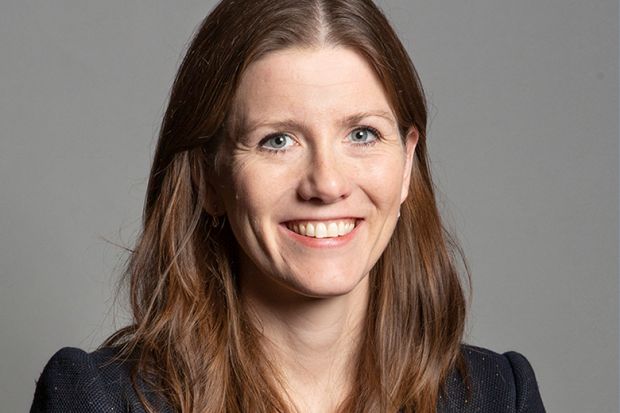Comments by England’s universities minister suggesting that it “doesn’t matter” about looking at which social groups fail to get to university have been described as potentially “troubling” and an apparent “significant departure from current policy”.
Michelle Donelan made the comments during an appearance before MPs on the Education Committee on 15 July, after being asked by Conservative MP Caroline Johnson “which groups are least likely to go to university” and what was being done to support them in considering higher education.
Ms Donelan answered that “we do have record numbers of disadvantaged students going to university. There are still challenges within different sections of society, including white working-class students.
“But I actually don’t think it’s a good measure to look at anyway. It’s the wrong question, if you don’t mind me saying. Because it doesn’t matter about looking at which groups don’t get to university. It’s about making sure that those groups that do go complete, that [courses] lead to graduate jobs, but also looking at what’s in that student’s best interests.”
The Office for Students, the English sector regulator established by the Conservative government in 2018, has set a target to eliminate the gap in entry rates between the most and the least represented groups at the most selective universities by 2038-39 – and reducing access gaps has been set as a key goal for universities by successive governments.
Ms Donelan’s comments follow fears in the sector that the government’s apparent desire to reduce the number of students entering higher education and to channel extra numbers into further education will accentuate social divisions, particularly if any form of grade threshold is used to restrict access to higher education.
Rachel Hewitt, director of policy and advocacy at the Higher Education Policy Institute, said there were “two ways of reading” the minister’s comments.
“If she is speaking about not just improving access but also improving retention rates and graduate outcomes, as well as providing alternative routes to higher education, this seems entirely fair,” said Ms Hewitt.
“However, the phrasing of her comments, combined with recent government rhetoric on universities, suggests something more troubling. Any step backwards on improving access to higher education to students from all backgrounds would clearly reduce social mobility and risk limiting who could benefit from the opportunities brought about by higher education.
“Her words also seem to be at odds with the great work that is being done by widening participation teams in universities, driven by Chris Millward [director for fair access and participation] at the Office for Students.”
Mary Curnock Cook, the former Ucas chief executive, said: “Michelle Donelan’s approach does seem to be a significant departure from current policy in widening and fair access to university. I’d find it hard to accept that we shouldn’t keep trying to ensure that people from under-represented groups are helped to access higher education and harder still if the rich/poor divide becomes an HE/FE divide.”
Greg Walker, chief executive of MillionPlus, the association of modern universities, said: “The long-standing principle governing access is that those who are able to benefit and who are willing to step up to HE study should be supported by the government and universities to do so.
“This is about access, completion and outcomes for under-represented groups – this is not a numbers game about entry alone. Modern universities invest enormous efforts to ensure student success in all its dimensions.”
Register to continue
Why register?
- Registration is free and only takes a moment
- Once registered, you can read 3 articles a month
- Sign up for our newsletter
Subscribe
Or subscribe for unlimited access to:
- Unlimited access to news, views, insights & reviews
- Digital editions
- Digital access to THE’s university and college rankings analysis
Already registered or a current subscriber?








